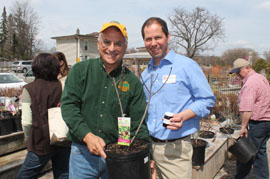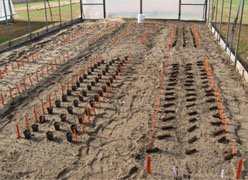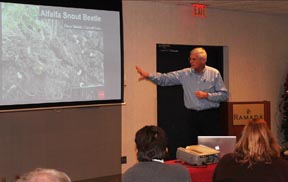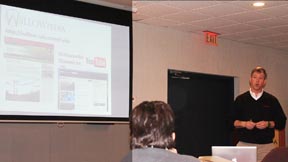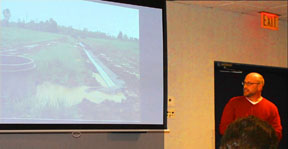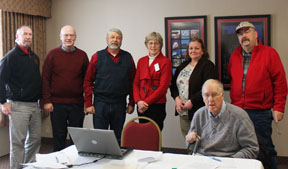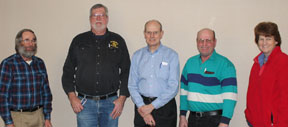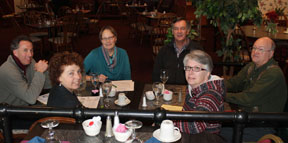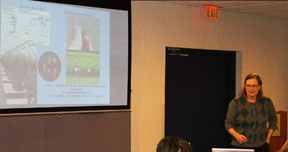Farm and home owners, Extension educators and Master Gardeners from eight counties across New York state attended the April 11, 2014, Juneberries for the Home and Small Farm Workshop hosted by Cornell Cooperative Extension of Onondaga County at Sollecito Landscaping Nursery in Syracuse, NY.
At left, nursery owner Jim Sollecito holds a juneberry plant, and workshop leader Jim Ochterski, agricultural program leader of Cornell Cooperative Extension in Ontario County, holds a jar of Nordic Farms’ juneberry jam. Ochterski is partnering with NNYADP Juneberry Nursery Project leaders Michael Davis, farm manager of the Cornell Willsboro Research Farm at Willsboro, NY, and botanist Michael Burgess of SUNY Plattsburgh.
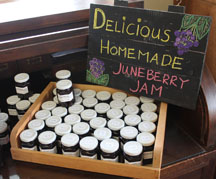 Those attending the workshop received juneberry production materials provided by workshop leader Jim Ochterski and the first report from the Northern New York Agricultural Development Program on the establishment of New York’s first juneberry research nursery. Everyone had a taste of Juneberry Jam from Nordic Farms in Branchport, NY.
Those attending the workshop received juneberry production materials provided by workshop leader Jim Ochterski and the first report from the Northern New York Agricultural Development Program on the establishment of New York’s first juneberry research nursery. Everyone had a taste of Juneberry Jam from Nordic Farms in Branchport, NY.
Since the workshop the NNYADP has received an inquiry from a large wholesaler asking when he might expect the region to be producing a supply of berries for sale.
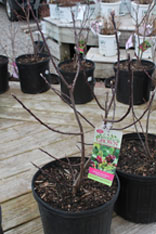 Learn more about juneberry production and marketing at https://www.nnyagdev.org/index.php/horticulture/juneberries-in-nny/. The page includes links to resources posted at www.juneberries.org.
Learn more about juneberry production and marketing at https://www.nnyagdev.org/index.php/horticulture/juneberries-in-nny/. The page includes links to resources posted at www.juneberries.org.
